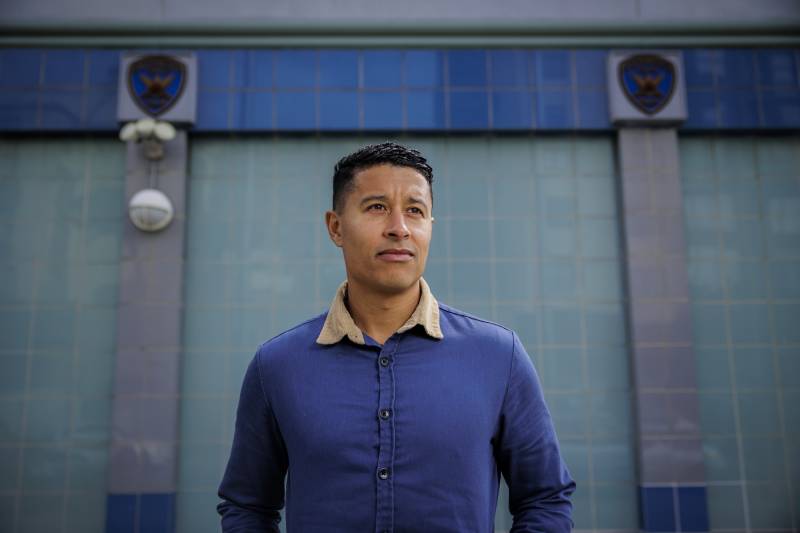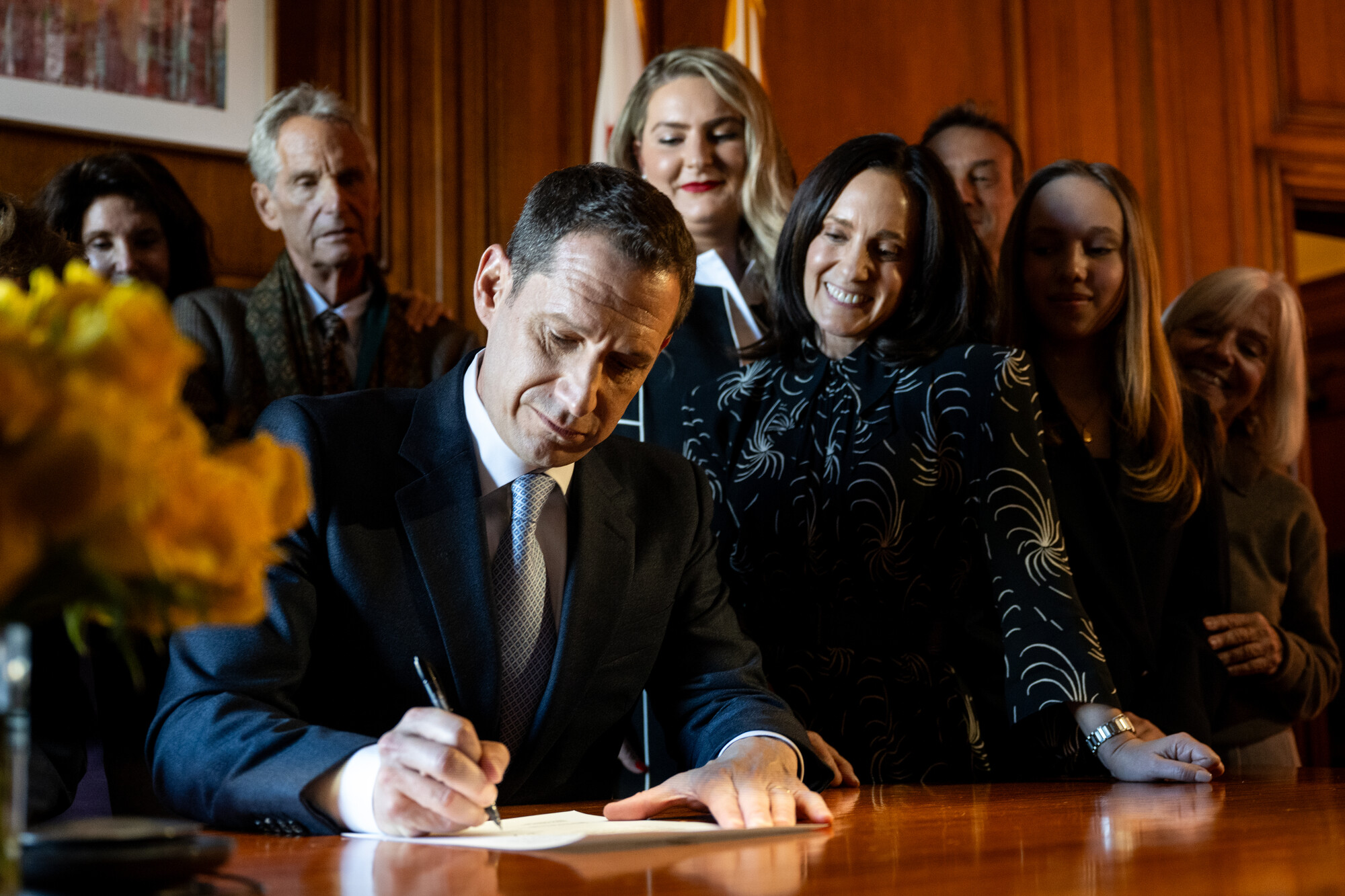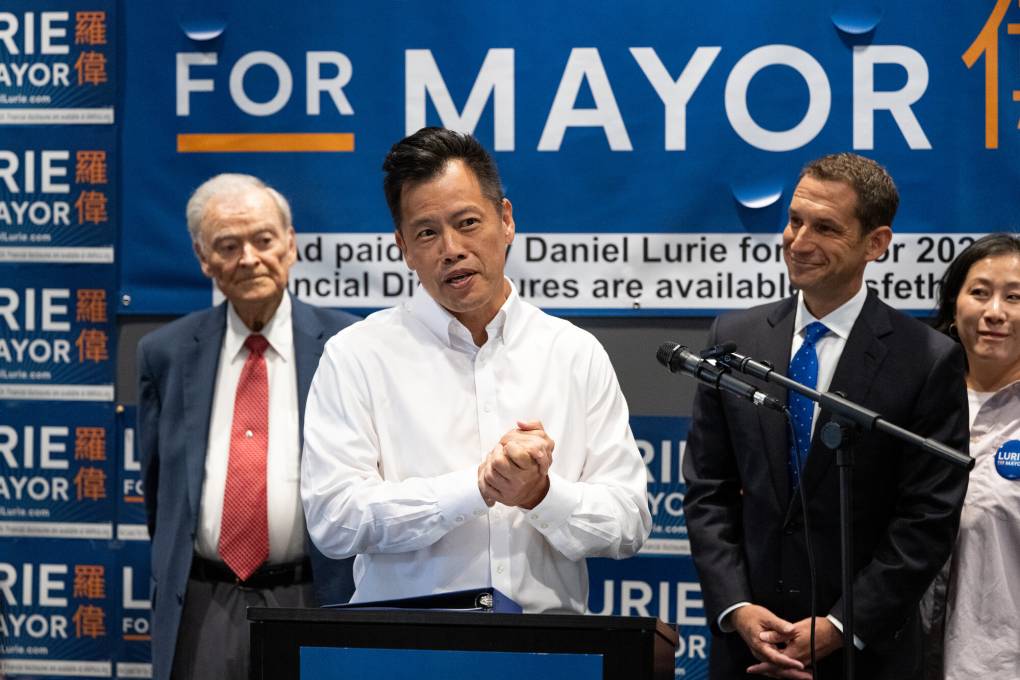San Francisco Mayor Daniel Lurie is pushing to remove a member of the city’s Police Commission known for butting heads with his predecessor, London Breed.
Max Carter-Oberstone, an advocate for police reform on the civilian-led commission, said the mayor’s office asked him to resign in a meeting last week, but he refused. Breed appointed him but he publicly opposed several of her administration’s policy efforts, pushed for limits on “pretextual stops” by police and exposed a controversial practice by the former mayor to have commission appointees preemptively sign undated resignation letters.
“What I said in my meeting with [Lurie’s] staff on Friday is that I would be happy to work with and collaborate with the mayor’s office on any range of initiatives,” Carter-Oberstone said. “But that, at the end of the day, the charter of San Francisco makes the Police Commission an independent body for some very important reasons. And so, at the end of the day, I have to make a final decision about how I vote on a commission.”


